INDUSTRIES SERVED
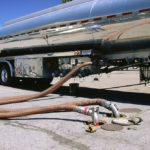
The Bulk Material Handling industry for metal hose applications refers to the transfer and transport of dry bulk materials. These materials include grain, plastic pellets, and chemical powders/granules, which all use pneumatic conveying systems (using either low-pressure or vacuum).
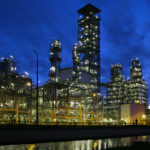
CHEMICAL
The Chemical Manufacturing industry uses a broad range of metal hose for the many products that must be conveyed. Corrugated metal hose can be manufactured in various alloys to provide the best corrosion resistance for the intended application.

CHIMNEY
Stripwound metal hose is often used as a liner for chimneys because it provides superior flame/heat resistance as well as ease of cleaning. The flexibility of stripwound metal hose allows it to be easily inserted into a chimney as a liner or reliner in existing or new constructions.
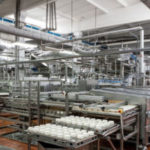
PETROLEUM
Refineries process crude oil products into fuel products, including gasoline, diesel fuel, kerosene, and other similar product. These processes require hose assemblies for petroleum transfer, steam lines, and for the transfer of by-products and additives associated with refining. Corrugated metal hose is ideal for applications that require resistance to heat, corrosion, or the severity in refinery service applications.

SHIP BUILDING
Typical metal hose applications in the Shipbuilding industry include expansion joints, which are ideally suited for exhaust bellows on the ship’s engines. Various other metal hose assembies are also used for steam, water and hydraulic lines to avoid catastrophic failure.
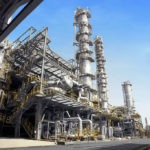
PETROCHEMICAL
The Petrochemical industry has hose requirements similar to the ones found in refining and the chemical processing markets. Petrochemical plants are primarily involved in the manufacture of plastic resins from a petroleum base. Therefore, hose applications include chemical transfer, steam lines, dry bulk material handling, and dock hoses.

REFINERY
PEI connectors are used to absorb vibration and accommodate misalignment or seismic movement in underground piping systems beneath service stations. Underground connectors are specially designed to provide the most flexibility in a limited space, while insuring safety when handling volatile liquids.
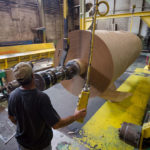
PAPER MILLS
Paper Mills use a lot of steam and various chemicals in their manufacturing process. Therefore, a wide variety of metal hose assemblies and expansion joints are used in this industry. By-products of paper mills include highly corrosive materials that require the use of corrosion resistant metals which can withstand high temperatures. Metal hose assemblies are a perfect fit in this type of environment.
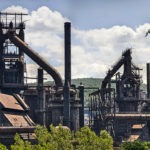
STEEL MILLS
Steel manufacturing utilizes a variety of metal hose assemblies to accommodate a multitude of applications. These include, but are not limited to, oxygen lance hose assemblies on BOF’s (basic oxygen furnaces), steam lines, gas lines, lubrication lines, cut-off torches, furnace door cooling hoses, tap hole drills, and spray chamber cooling lines.
Because of the high heat and corrosive gases generated in this industry, metal hose is an ideal fit for the stringent environment associated with steel manufacturing.
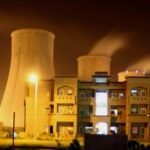
UTILITIES / POWER PLANTS
Utilities and power plants use metal hose and expansion joints for steam piping systems as well as fuel delivery lines in power generation equipment. Included in this industry are steam turbine manufacturers who also use metal hose for high pressure lubrication line applications and metal expansion joints found within the various piping systems. Similarly, nuclear power plants use metal hose and expansion joints for many of their critical service applications.
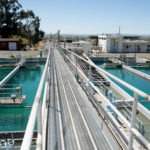
WATER TREATMENT
Water treatment facilities use chlorine in their purification process. Hose Master’s ChlorSafe hose assembies are specifically designed for the safe transfer of wet or dry chlorine. Manufactured from C276 alloy, these assembies are the best in overcoming the potential hazards associated with other metals or fluoropolymers. All ChlorSafe assemblies are made in accordance with the latest guidelines as specified by the Chlorine Institute.

